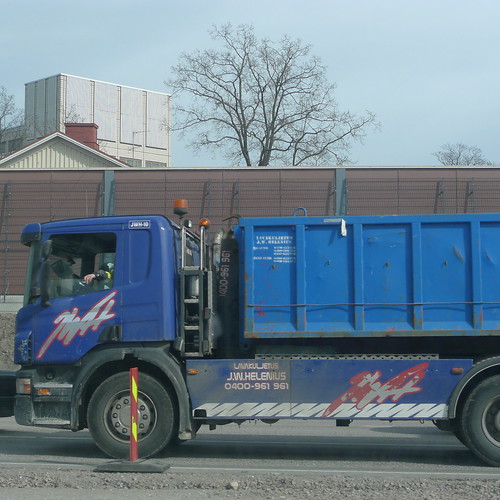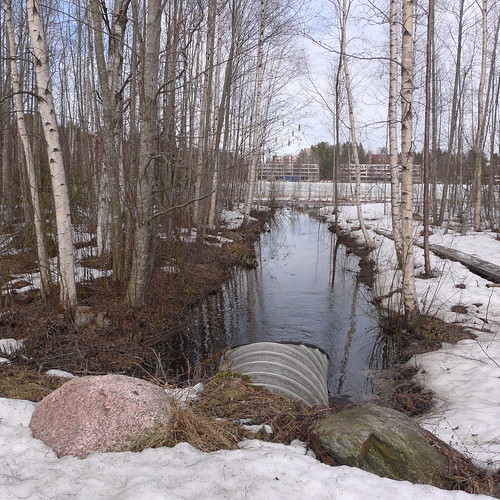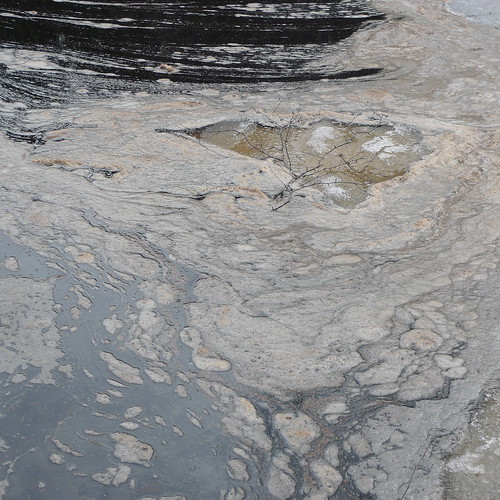I posted yesterday some photographs taken at the Laajalahti bay. I remembered that I had taken photographs there also in 2009 - and quite different year we had then. On February 9, 2009, the spring was more advanced than it is now, two months later in the year.
It was nice to note I was then reading a book by Sam Abell; he is still a great example to me. I wrote: "... how basic, ordinary subjects of photography can turn in skilled hands into poetry, showing the viewers what it means to be human. [...] I'm very far away from that target, but by practising I hope that I'm able to see better, and thus at least better appreciate photographs taken by others."
In the "appreciation" area I think I have learned something during these two years. It has been fun.
I have continued to read books on photography. Of some of them it is possible to say something similar to what was written in a book review by The Times: "He is the best kind of writer - the kind who makes you feel like you're are genius, rather than that he's a genius."
However, sometimes it is not so.
I'm currently reading, thanks to the excellent local library system, Alain Briot's Mastering Photographic Composition, Creativity, and Personal Style (Rocky Nook, 2009). This is a hard book to read for me, as I have a problem in adjusting to the tone of the writing. It is not often I run into such difficulties, but here I'm bothered a lot.
Many books on photography, and those which I value a lot, fall into two categories: containing either excellent photographs accompanied by some personal observations by the photographer, not taking the focus off the photographs; or containing teaching in which the writer has the honest intention of making as good a job as possible in sharing his/her experience.
However, Briot's book seems to be more about marketing the photographer and his work, not so much about teaching. I may be completely wrong, but that is how the text comes through. Briot is such a well-know artist that he shouldn't need to stress the point how good he is.
The book starts with an argument - a good one, I may say - about whether it is the camera which makes the photograph, or is it the photographer. But even in this text there is an underlaying current saying that Briot is the Photographer, and even though others might buy the same equipment, it is Briot who is the master. And in fact, Briot will win even when using inferior equipment.
Maybe I just opened the book in the wrong mood or something. Have to come back to this later.
But when one forgets (most of) the text and just looks at the photographs, this is mostly an excellent book. By just looking at the photographs, one can learn a lot. And there are occasional passages in which the skills do come through, and one learns new things.
However, my approach to photography is very, very different than Briot's. I don't spend "days, months, even years" in post-processing the photographs, and I don't shoot RAW with high-end cameras.
I just take snapshots with the Panasonic LX3, straight jpeg, usually with no post-processing. So who I am to discuss the problems with this book?
Naugatuck River Ice
7 hours ago






4 comments:
Juha, I also had mixed feelings when reading Briot's book, but maybe it's just that part of the American businessman that sounds too self-confident for our European socialisation.
But you also have to acknowledge, that it is by now way self-understanding that someone can lead a decent life by artistic photography alone. That alone *is* an achievement, and I do understand that he is proud about it.
But teaching/learning photography from books is extremely difficult. I have more or less completely stopped to read any teaching books, instead I delve into photography books like the Abell you mention, or the Turnley's McClellan Street - nurturing my vision, my reception, will bring me further than especially the technical parts of any instruction book. And for some niche knowledge I'd like to take up, the internet most likely brings a variety of possibilities that I can try and compare.
For what it's worth I find Alain Briot's writing on the technical side of photography interesting, but I also have a problem with his tone whenever he talks about 'style' or 'creativity'. I have my biases - I have a 'fine arts'/illustration background, but I feel opposed to his point of view. (Which is odd, since there was some overlap in the kind of training he and I received.)
The best photography teacher I know by far is Mike Johnston (The Online Photographer), and I continue to learn new things from him every year. I know you've posted on his blog before - if you haven't yet, try trawling through the archives, and every so often he drops a really keen insight into the art of photography.
If I had to critique Briot in a particular way, I'd say that I disagree with him about the question of the mastery of the artist vs. the camera. I believe that the image is everything, and therefore the question of photographer vs. equipment is irrelevant. It is almost a koan: which is more important, man or machine? Answer: the image.
I think you are living out that particular answer, by choosing the tools that you have. You produce brilliant images daily, and you have joy in making them. What else is there in photography? I am curious what you would choose to do with other equipment, in the same way that I'm curious about what Van Gogh would have done with a film rangefinder. In particular, I'm curious how you would take a RAW file and re-interpret the tonal range after the fact, but I can't blame you for finding that sort of thing uninteresting. Most of the time I try to get the image I want 'in camera'. Most of my re-interpretations are of scans of film photographs, since negative film doesn't have a 'right answer'.
Will
@Markus: Indeed, Briot is one of the few who can make a living with his art. I guess this also comes through the book, as his approach to photography is a combination of Art and Selling - he is very good in it.
@Will: Yes, TOP is a treasure trove, in multiple ways. Your point about the camera vs. photographer vs. image relation is good indeed - this is something to think about.
I have often a feeling that some photographs just make themselves, it is not me or the camera who makes them.
"which is more important, man or machine? Answer: the image"
Will, this is just brilliant!
Post a Comment